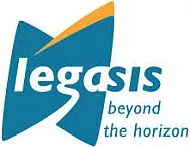- within Corporate/Commercial Law topic(s)
- in United States
- in United States
- within Privacy topic(s)
Organizations that are built on the foundation of integrity and trust mostly outperform their competition in the long run. Building an organization and an ethical culture is an activity which requires commitment and dedication from all stakeholders at all times. The benefits these organizations emanate are also passed at an individual level.
There have been several studies and it is now an established fact that organizations do benefit from their reputation. However, there is a popular saying that reputation is what people think of you and character is what you make of yourself or what you think of yourself. Many organisations today are trying to uphold their reputation and are making efforts to maintain it. However, understanding reputation as people's perception of you, it is understood that it will not last long and one will have to put a lot of effort into maintaining that. On the other hand, a character which is more innate and is aligned with our principles is long-lived. This can be
understood better from recent news of organizations being accused of greenwashing to enhance their reputation and profits.
Last year organizations were challenged with many issues relating to human resource management like laying off, moonlighting and organizational discipline. These issues still remain the talk of the day. The organziations to overcome these issues should consider how ethical their approach has been. A few organizations handled these issues with sensitivity and by putting people first while some weighed more on profits. It can be presumed that organizations that put more reliance on people and processes while handling the issues might have a stronger sense of ethics. Ethics helps you to design your processes in a people-centric way.
The reaction from an organization is not only driven by the wisdom of a few but is also guided by the Code of Ethics & Conduct or the principles that the organization subscribes to. These coded principles shape the character of the organization and they should not just be there on a piece of paper but should be lived to their truest sense to enable an environment where people feel included and valued. Living these principles helps us build integrity. Integrity in thought and in action. When the gap between thought and action is bridged, the code is imbibed in day-to-day activities giving us purpose rather than just working on whims.
Another challenge that organizations have faced for some time now is Diversity, Equity and Inclusion (DE&I). To champion this issue there is a long road ahead. This issue much like other issues should not be overlooked and must be treated seriously. The purpose of DE&I is to encourage representation from various segments of the society. However, sometimes it is observed that people are recruited under DE&I policy only to foster the company's reputation. Even more, women who form an equal share in the workforce today are sometimes placed in the bracket of DE&I. It should be realized that such a move defeats the entire purpose of DE&I. Hence it is argued that when you develop a character you develop a mutual respect for others and as mentioned previously character helps us live the policies rather than merely following them blindly.
How to build a character?
Character is built by following the same set of values at all times and in all scenarios. When a person is aware of their values they develop a strong inner moral compass which then guides them to act ethically in all scenarios. Values must be coded and imbibed in a document. There are many stakeholders in a company and hence factoring each voice to imbibe values in a code is a difficult task. However, senior management can come together to factor common set of values that can be imbibed.
The senior leadership has an important role to play in setting the tone. In the recent EY Integrity report it was observed that employees look up to their leaders and their misconduct is directly influenced by the actions of the leaders.
In the same report, it was also observed that at a global stage, there exists a lack of awareness and training which leads to incidences of misconduct. A staggering 54% of respondents claimed that employees don't understand the requirements and expectations set by various policies. Realising this gap some companies now have started to invest in training the employees irrespective of their positions. One of the most important topics that is discussed during these sessions is the role of integrity in shaping the future of the organization and creating an 'ethical backbone'.
Way Ahead and Word of the Year
When the focus is on developing character we tend to set goals for ourselves and are more concerned about what matters to us and what we aim to be. Following this approach makes us do the right thing at most times and little to less external stimuli is needed to do the right thing.
It also helps us to be honest with ourselves and set small achievable goals which are essential when planning to achieve something big. When an organization and its stakeholders are trying to build an ethical culture, it is necessary that they make necessary changes at an individual level and build up a character which then translates into reputation. Although individual acts seem negligible they do contribute to the larger idea of building up a character.
The Cambridge Dictionary website declared 'Manifest' as the word of the year 2024. Rightly so we must manifest positive outcomes for the upcoming year, we manifest what we want to be and we manifest what is best for not just the organization but also for its stakeholders including the environment. These manifestations coupled with action i.e. training people will help to pave the way for a better and resilient 2025.
Originally published January 2025
The content of this article is intended to provide a general guide to the subject matter. Specialist advice should be sought about your specific circumstances.



